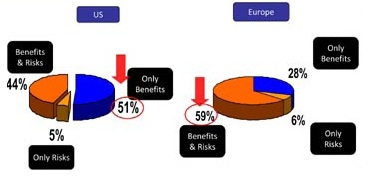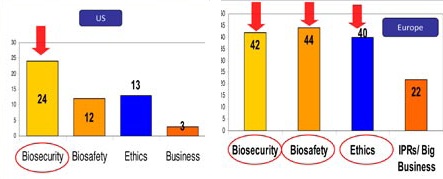Team:INSA-Lyon/Safety/Ethics/Medias
From 2010.igem.org
m |
|||
| (22 intermediate revisions not shown) | |||
| Line 5: | Line 5: | ||
{{INSA-Lyon/menugauche}} | {{INSA-Lyon/menugauche}} | ||
| + | {{INSA-Lyon/menuhp2}} | ||
<html xmlns="http://www.w3.org/1999/xhtml" dir="ltr" lang="en-US" xml:lang="en"> | <html xmlns="http://www.w3.org/1999/xhtml" dir="ltr" lang="en-US" xml:lang="en"> | ||
<style type="text/css";> | <style type="text/css";> | ||
| - | .firstHeading{background-image: url(https://static.igem.org/mediawiki/2010/ | + | .firstHeading{background-image: url(https://static.igem.org/mediawiki/2010/7/72/Bandeauhp.jpg); background-repeat: no repeat; background-position: center;} |
</style> | </style> | ||
| - | < | + | <style type="text/css"> |
| - | + | .imageg {width:350px; height:160px; margin-top: 10px; margin-bottom: 30px; margin-right: 10px; float: left; position: relative;} | |
| - | + | .imaged {width:400px; height:150px; margin-top: 10px; margin-bottom: 10px; margin-left: 10px; float: right; position: relative;} | |
| - | + | </style> | |
| - | + | <a href="top"></a> | |
| - | + | ||
| - | + | ||
| - | </ | + | |
| - | + | ||
| - | + | ||
| - | + | ||
| - | + | ||
| - | + | ||
| - | + | ||
| - | + | ||
<div id="corps2"> | <div id="corps2"> | ||
| + | <a name="ethicCheck"></a> | ||
| + | <h2>Yesterday , Today and Tomorrow : an ethical future for SynBio ?</h2> | ||
| + | <br/><p>The iGEM competition is an important showcase for the emergence of Synthetic biology, as well for scientist and non-scientist people. But, as a new unknown activity, especially a scientific one,<em/> SynBio</em> brings interrogations:<br/> | ||
| + | Is it dangerous? Are there some risks? How can it help our future? What are the challenges? <br/> | ||
| + | </p> | ||
| - | <h3>Medias and Public speak about <em/>Synbio</em> </h3> <br/> | + | <br><br> |
| + | <h3><font color="purple">Medias and Public speak about <em/>Synbio</em></font></h3><br/> | ||
<br/> | <br/> | ||
| - | <p>In | + | <p>In order to see how much people know about <em/>Synbio</em>, Eleonore Pauwels, a research scholar working in the foresight and governance project at the Woodrow Wilson International Center for Scholars in Washington D.C., has made a public investigation for the “Ethical Aspects of Synthetic Biology” round-table, organized by the European Union in 2009. It appears that <em/>Synbio</em> just begins to be an integrative process. <br/> |
| + | </p><br/> | ||
| + | <p>The first way to introduce <em/>Synbio</em> to society is the newspapers. During the last few years, the number of articles published in the press has been increasing. Especially in Europe: more than 100 articles have been published in five years, whereas about 50 in the USA. In Europe, France and the United Kingdom are the leaders. <br/> | ||
| + | </p><br/> | ||
| + | <p>However, they have a different approach to <em/>Synbio</em>. The US articles refer more about benefits of <em/>Synbio</em>, and the topics are focused on Energy and Health. The European vision is more cautious: they focus on the ratio benefits/risks, in the environment and energetic domains. And these differences get bigger concerning the type of risks. American Medias just focus on the biosecurity, while European ones write about biosafety, biosecurity and ethics. | ||
| + | <br/></p><br/><br/> | ||
| + | <div style="text-align:justify;"> | ||
| + | <img class="imageg" src="http://lh6.ggpht.com/_Uc3bmii-yi0/TMctpxaLR6I/AAAAAAAAAhc/WLw0T0802Ig/Medias%201.jpg" border="0" alt="Medias1" Title = "US vs European vision" /> | ||
| + | </div> | ||
<br/> | <br/> | ||
| - | |||
<br/> | <br/> | ||
| - | |||
<br/> | <br/> | ||
| - | + | <div style="text-align:justify;"> | |
| - | + | <img class="imaged" src="http://lh5.ggpht.com/_Uc3bmii-yi0/TMctqAEFHwI/AAAAAAAAAhg/VyjDDjLXE1A/Medias%202.jpg" border="0" alt="Medias2" Title = "Principal Risks" /> | |
<br/> | <br/> | ||
| - | Reading people | + | <br/> |
| - | That’s why ethical framework is important to | + | <br/> |
| + | <p style="font-size:0.7em; text-indent:10px; text-align:left;"> <em/> Optimistic US vs Precautionnary Europe</em></p> | ||
| + | <p style="font-size:0.7em; text-indent:0px; text-align:right;"> <em/> Biosecurity vs Biosafety? </em></p> | ||
| + | <br/> | ||
| + | <p style="font-size:0.9em; text-indent:0px; text-align:center;"> <em/> "Public Perception and the Media: the Case of Synthetic Biology",Eleonore PAUWELS</em></p> | ||
| + | </div> | ||
| + | <br/><br/> | ||
| + | <br/> | ||
| + | <p>Even if newspapers are trying to make <em/>Synbio</em> more popular, focusing on potential applications closed to people's concerns, this subject doesn’t seem to interest them. According to an investigation realized in the US, more than 70% of the interrogated people had never heard about <em><em/>Synbio</em></em>. Ignorance is one of the main problems of <em><em/>Synbio</em></em> because it scares people and make them cautious about the subject. Their principal concern is the ratio benefits/risks . Moreover, media does not always emphasize the entire truth and they focus on incidental anecdotes. This can be prejudicial for <em/>Synbio</em> and genetic modifications. People have been informed of some scientific failures and then they seem already well aware of the limits and the safety of <em/>Synbio</em> even if currently nobody can tell if <em><em/>Synbio</em></em> is safe and have limits… <br/> | ||
| + | In our opinion, people are badly informed and that makes them reluctant to scientific progress.<br/> | ||
| + | <br/></p> | ||
| + | <p>Reading people interviews, <em><em/>Synbio</em></em> appears like the new craziness of the scientists, who want to play God and don’t care about ethics and people. Man always wants to control life, which is a great power. And we know how much Man loves power… Not only scientists by the way, the consequences of <em/>Synbio</em> is everybody's concern, from politicians to citizens.<br /></p><br/> | ||
| + | <p>That’s why ethical framework is important to surround scientific researchs and to build the dialog in between society and scientific community in order to consolidate trust in science, and especially biology. All the polemics about Genetically Modified Organisms should be avoided. It’s time to have a new start, and make <em/>Synbio</em> a way to develop an integrative science, with the help of the political community.<br/> | ||
</p> | </p> | ||
</div> | </div> | ||
| + | |||
| + | <p style="text-align:center;"><a href="#top">Top of Page</a></p> | ||
<div id="corps4" style="border:0px;"> | <div id="corps4" style="border:0px;"> | ||
| Line 69: | Line 86: | ||
</html> | </html> | ||
| - | |||
| - | |||
| - | |||
| - | |||
Latest revision as of 22:47, 27 October 2010
Yesterday , Today and Tomorrow : an ethical future for SynBio ?
The iGEM competition is an important showcase for the emergence of Synthetic biology, as well for scientist and non-scientist people. But, as a new unknown activity, especially a scientific one, SynBio brings interrogations:
Is it dangerous? Are there some risks? How can it help our future? What are the challenges?
Medias and Public speak about Synbio
In order to see how much people know about Synbio, Eleonore Pauwels, a research scholar working in the foresight and governance project at the Woodrow Wilson International Center for Scholars in Washington D.C., has made a public investigation for the “Ethical Aspects of Synthetic Biology” round-table, organized by the European Union in 2009. It appears that Synbio just begins to be an integrative process.
The first way to introduce Synbio to society is the newspapers. During the last few years, the number of articles published in the press has been increasing. Especially in Europe: more than 100 articles have been published in five years, whereas about 50 in the USA. In Europe, France and the United Kingdom are the leaders.
However, they have a different approach to Synbio. The US articles refer more about benefits of Synbio, and the topics are focused on Energy and Health. The European vision is more cautious: they focus on the ratio benefits/risks, in the environment and energetic domains. And these differences get bigger concerning the type of risks. American Medias just focus on the biosecurity, while European ones write about biosafety, biosecurity and ethics.


Optimistic US vs Precautionnary Europe
Biosecurity vs Biosafety?
"Public Perception and the Media: the Case of Synthetic Biology",Eleonore PAUWELS
Even if newspapers are trying to make Synbio more popular, focusing on potential applications closed to people's concerns, this subject doesn’t seem to interest them. According to an investigation realized in the US, more than 70% of the interrogated people had never heard about Synbio. Ignorance is one of the main problems of Synbio because it scares people and make them cautious about the subject. Their principal concern is the ratio benefits/risks . Moreover, media does not always emphasize the entire truth and they focus on incidental anecdotes. This can be prejudicial for Synbio and genetic modifications. People have been informed of some scientific failures and then they seem already well aware of the limits and the safety of Synbio even if currently nobody can tell if Synbio is safe and have limits…
In our opinion, people are badly informed and that makes them reluctant to scientific progress.
Reading people interviews, Synbio appears like the new craziness of the scientists, who want to play God and don’t care about ethics and people. Man always wants to control life, which is a great power. And we know how much Man loves power… Not only scientists by the way, the consequences of Synbio is everybody's concern, from politicians to citizens.
That’s why ethical framework is important to surround scientific researchs and to build the dialog in between society and scientific community in order to consolidate trust in science, and especially biology. All the polemics about Genetically Modified Organisms should be avoided. It’s time to have a new start, and make Synbio a way to develop an integrative science, with the help of the political community.
 "
"


